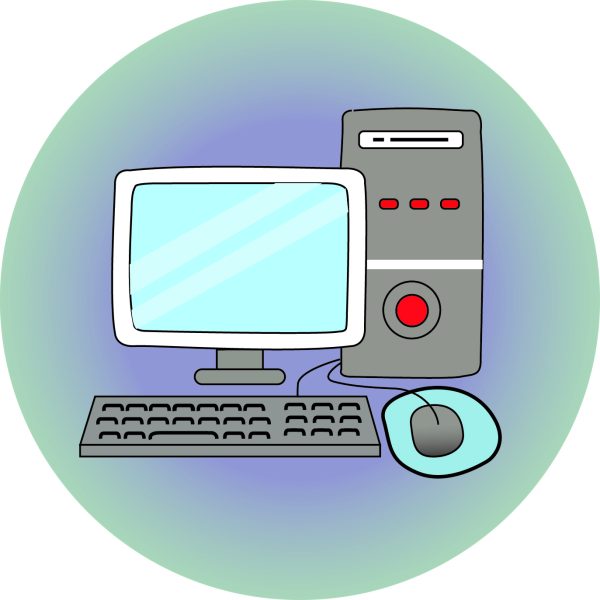From Print to Screen
December 16, 2020
As our progressing societies are continuously making strides in technological advancements, some of the daily practices we once used to partake in are slowly being driven out by newer and more attractive materialistic goods. Even the simplest notion of how we get our daily news has significantly changed with the modernization of today’s world. Instead of receiving our news from the newspaper, people now receive their news from some mode of screen, whether it is the television showing the many biased and corrupt news channels, or simply apps on your phone that can have you updated with a single click. In fact, most people do not even receive a newspaper anymore. And if they do, they often do not read it; sophomore Emma Silva explains that “[her] family does not read the newspaper, but watches [news] on TV instead.” However, Silva and her family are careful; she says, “I do not completely trust what everyone says on TV, but it is fun to see what is going on around the world, and keep up with current events.” Why read the newspaper when you can listen and watch with a single press of a button? World Atlas states that the “digitization of news content has favored the younger adults who spend more of their time on their phones and computers than on television and print media.”
As the world grows more and more advanced, many worry that our dependency, especially those who have grown up with the access to technology, will start to solely rely on these devices as a means of survival. If we do not know what life was like without them, how will we distinguish and differentiate our natural want versus a dangerous dependency that frankly does not deserve our trust? The Atlantic describes the media as “not a single tangible object, but rather an information galaxy, a vast and complex star system composed of diverse and opposing organizations, which are themselves composed of a motley group of people, each of whom are neither all good nor all bad, but mostly flawed media merchants, with individual strengths, weaknesses, biases, and blindspots.” The news you view on your digital feed tends to be filtered in order to satisfy you. As a result, you are only viewing online articles that have been refined to fit you. If you are a Democrat, the chances of you reading information online, related to Democratic views, is very likely. This distorts people’s opinions, they are only reading information that supports their view points. This in turn limits people’s thinking.
The more skilled we become with technology, the more negatives it seems to bring with its new power. As the world grows, so does our greed and exploitation. And with this, a term known as fake news starts to show itself through our once reliable and trustworthy sources. CiTS describes fake news as being “designed to manipulate people’s perceptions of real facts, events, and statements.” Senior Ashley Hickey defines the term fake news as “false information in the form of an article or any news source.” Hickey thinks that most of the news we revive is in fact fake news and says, “It does worry me because you never know what is true and what is false.” Sophomore Tanner Dutra describes it as “news that is using illegitimate facts.” Dutra also says, “I think quite a lot of it is fake news because social media purposely shows us news based on the political party of where we live to make us feel good. And news on both sides can be fake news.” That is the scary thing.
In today’s world, it is often hard to trust where we get our news from due to the many instances of fake news, bias, and political greed that now seem to take over so many news channels. How we get our news has changed a significant amount due to our country’s technological advancement over the years. Very few people get their news from newspapers, and instead use their many devices to catch up. Despite this change from paper to screen, older Americans tend to prefer, and in fact still use, newspapers for their news, trying to avoid politics and other foolish online content. But younger generations use their devices for news along with everything else. This is when the term fake news comes into play. As the world around us becomes even more disastrous, with global warming, racism, hate, etc., the more people think they have the right to twist the news. You would think people would not fall prey to this “twisting of the news” known as fake news, but the more foolishness we see online, the more we believe. Now, this cycle of fake news expands, causing more people to do it and making more people believe it. This then adds greater levels of fear into citizen’s lives. We slowly start to lose our trust, and our ability to decipher right from wrong, true from false. At first, the term fake news does not seem that daunting, but the long term effects that it has on societies should scare you. How will you know what is really true or not? For when you turn on your device or television, all they are feeding you is lies. Forbes’ Jim Moore discuses the newspaper and how “the printed paper is still my ultimate refuge. It makes me feel connected to the editorialists, the columnists, the reporters, the obituaries, the comics, the stock market reports, in a way electrons can’t.” Junior Nirekh Dasika also highlights how fake news can be linked to specific people, especially politicians; “[fake news] is associated with Donald Trump.” Dasika also explains, “It is just biased news and I think a lot of modern day news, if not all, is biased enough to be fake and neither because both are heavily edited and for an agenda of a political party.”
Hickey states, “In regards to fake news, I would rather read a newspaper because it seems more accurate.” Pew Research Center states that, “Only about two-in-ten Americans (22%) trust the information they get from local news organizations a lot, whether online or offline, and 18% say the same of national organizations, slightly higher than the 14% who say this of the information they get from their friends and family.” Maybe it is time we put down our screens and started to receive our news from the newspaper. Whether or not we care where we get our news from, it is still important that we take time away from the lies and the fears that come with the modern world, and read. We need to successfully differentiate right from wrong, true from false, so we do not eventually lose our successful civilizations to something as stupid as fake news.





